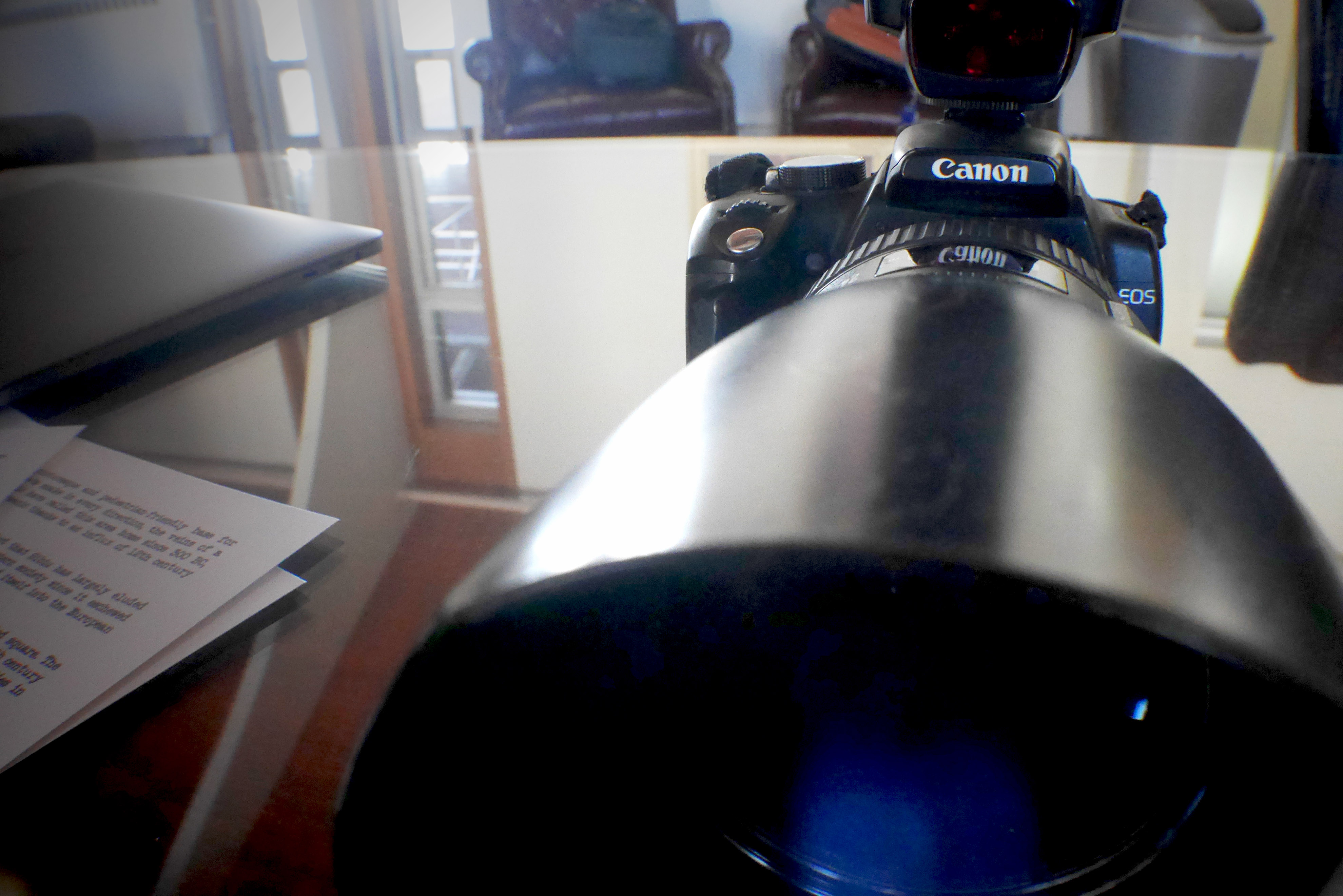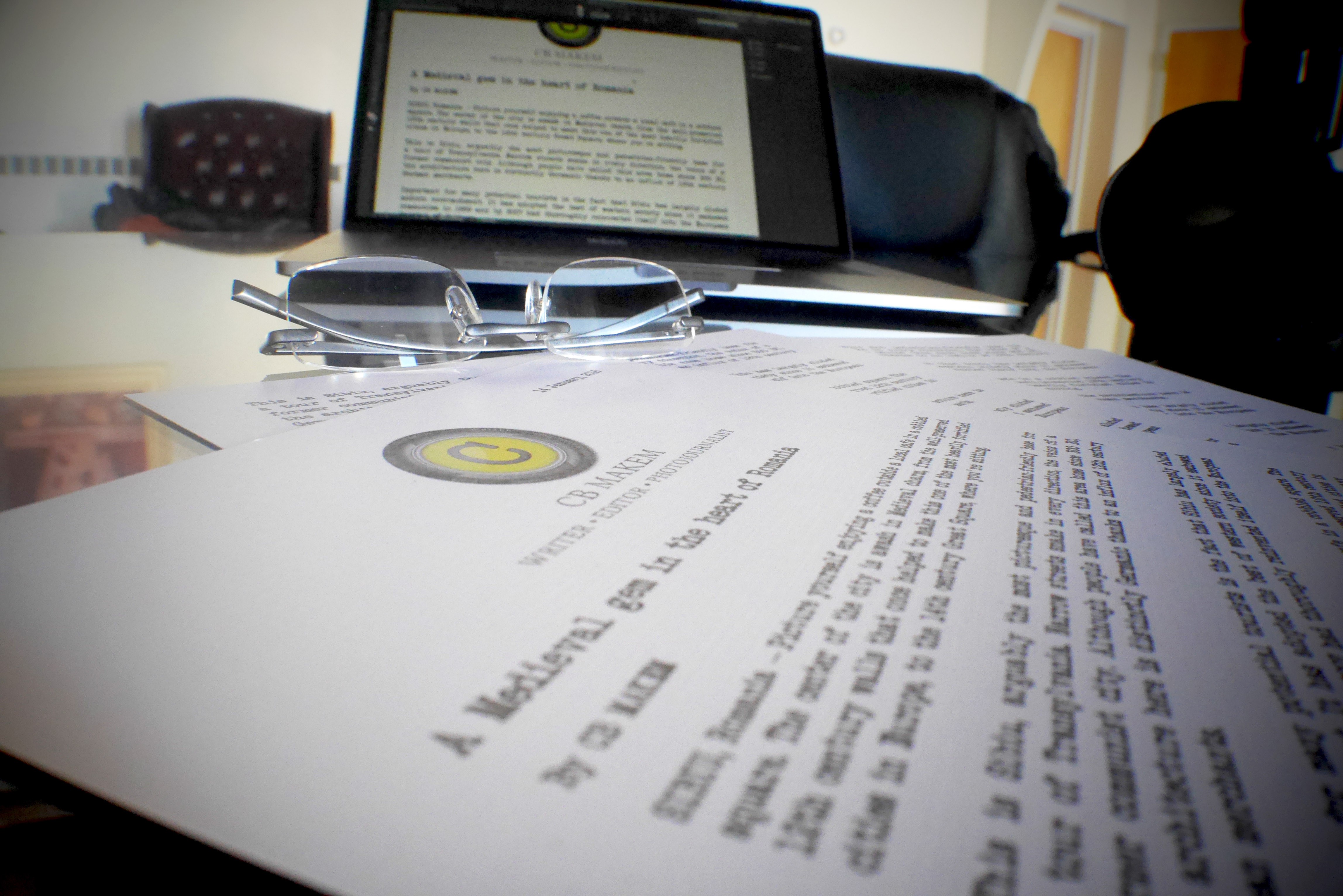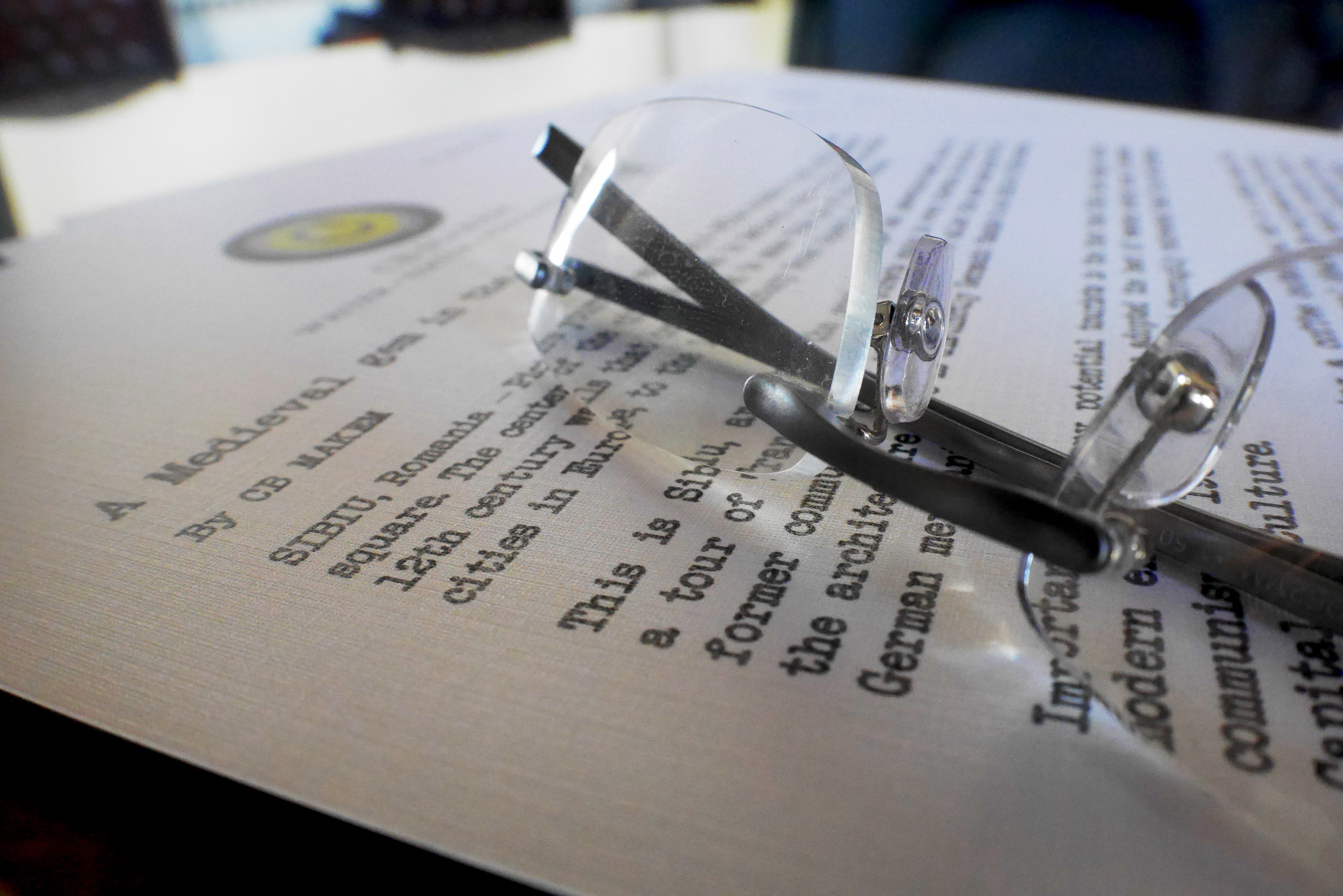Visiting Romania (or Romania's idiosyncrasies)
Everywhere on earth has its own set of customs. My home town in the United States requires garbage to be left at the street every week in a city trash bag, or with a city sticker for bigger items. It's essentially a tax and people pay for the amount of waste they produce. Recycling is free.
Cutting to the chase, here are some things I've noticed after a month and a half of living in Romania:
Cash is king — Many places take credit cards, but as of 2018, cash is still the preferred way to do business. I rented a car this week without supplying a credit card. Shop owners complain about having to pay credit card companies to use their services.
"Cash or credit" — If you visit a restaurant in Romania, you will more than likely be asked if you're paying by cash or credit card. This simply lets them know whether they should bring the portable credit card machine to the table. Sometimes they'll even bring change to the table if you pay in cash.
Language barriers — It is true that you'll find a much higher percentage of people in cities who speak English. Most, it seems, will be able to fumble through a bit of English even if they aren't fluent. The same can't be said for the towns. Generally young people are your best bet.
Public transportation: a bit daunting — Buses can be frustrating. There are multiple bus companies and accurate schedules (at least in 2018) are hard to come by, even on the company websites or at the bus stop. Your best bet is to find someone who speaks enough English (and who knows the bus system) to help you. Once you're on board, everything is smooth sailing, though you might be dropped off in one location and need to find another location to get the return trip. Also, due to a crumbling infrastructure, the trains don't seem to be a very great means of transport. They can be slow. Apparently corruption caused the system to collapse and it's never really fully recovered.
Aggressive drivers — Romanians, like a lot of Europeans, can be quite aggressive drivers. Be forewarned that you'll be one of the slowest drivers on the road if you're only doing 20-30 kph over the speed limit. People pass around corners, in town centers full of pedestrians or on the right. Even doing well over the speed limit, buses and tractor trailers might pass you.
Crosswalks rule — However, drivers are amazingly good at stopping for people in crosswalks. It must be close to 100 percent, due (I've heard) to stiff penalties for not yielding. If there's a crosswalk, pedestrians usually make their way to it rather than crossing where there isn't one. And if there's a crosswalk light, pedestrians nearly always wait for it.
Coffee yes, tea . . . not so much — Coffee is available just about everywhere as are the fruity concoctions often referred to as "tea," but regular black tea is only gaining momentum in restaurants now, and it's very hard to find in stores. You also may get strange looks if you ask for milk and sugar with your tea.
Breakfast — Eating breakfast at a restaurant is not overly popular in Romania, and the menus can be limited. And though hotels options are available earlier, it's possible restaurants won't even start serving until 10 a.m. The morning meal at hotels and restaurants may include a selection of omelets, plain French toast (sprinkling with sugar is nice), cereal, bread, meats and cheeses, or sausages, cucumbers and tomatoes. As often as not, there are only a few of those items on the menu. Available for a flat rate or even complimentary with many hotel stays, the items are usually sold separately in restaurants.
Butter — Almost all butter is unsalted.
Churches are ubiquitous — In just about every small town, there are beautiful churches, often several of them.
Parking — Increasingly, towns and cities prefer you pay for parking using an app on your phone or by texting a code to a specific phone number. There's often a kiosk where you can pay for a parking ticket that you place on your dashboard . . . but not always, and I've heard stories of cars being towed for illegal parking.
Businesses — You will see mobile phone shops. They're everywhere. In fact, we rented a car from a phone shop. There's also an abundance of shoe stores, clothing shops, second hand outlets and butchers. Depending on the town, pharmacies can abound, as can dentists and doctors.
Grocery stores — You'll be expected to buy bags if you don't bring your own to a grocery store. Depending on the store, you will likely have to weigh out various fruits and vegetables at a scale and print up a sticker before heading to the cashier, unless you're fond of exasperated moans from the people in line behind you.
Bakeries — These offer some of the truly great deals in Romania. Generally there's a window open to the sidewalk and customers line up to buy a pastry or slice of pizza at the window. They're quite reasonably priced and offer tasty options, though you might not know what you're buying, as the descriptions are usually in Romanian. Pointing is the best method if you don't speak the language.
Cuisine — There's not a wide variety of cuisines outside of the cities. Don't expect to find many options for Chinese, Mexican, Thai or Indian. What you will find is generally good though: pizza is ubiquitous; vegetarian options are increasing (though meat still reins supreme); soups are meals and delicious; there are always salad choices; Italian is the one International cuisine you're likely to find just about everywhere — there's plenty of pasta.
Bars — There are plenty of great options for bar-hopping in Romania's cities, but in the smaller towns not so much. Residents in small communities tend to hold social gatherings at home. If you're interested in heading out for a drink, you might well end up in a restaurant, where you can sit at a table. They won't be annoyed if you just order soda. Whether it's because it's an extra expense or not, Romanians seem to be conservative when it comes to drinking in public. They nurse their alcohol.
Drinking and driving — Another likely reason for the abundance of non-alcohol consuming patrons at bars and restaurants is the country's intolerance for drinking and driving. The BAC level for drunk driving is anything over .02%. You basically cannot drink anything and drive legally. That doesn't mean it doesn't happen, but penalties are serious. If you're found to be over .05%, you're looking at between one and five years in jail.
Cost of living – If you're taking a holiday on a budget, you could hardly to better than Romania. It's possible for two people to have a respectable meal with a glass of wine each and a 10% tip (tips are between 5-10%) for $15. My partner and I spent a good while in a local eatery, where we bought five mixed drinks, a half liter of wine, two dinners and a tip, which only cost $32.51. For a recent off-season trip to Sibiu (a highly recommended city), we stayed at an apartment-style Airbnb, a seven-minute walk to the old town, with a modern bathroom, kitchen, living room and bedroom for $20 a night. A car rental for the week was $23 a day, with no credit card used and no hidden fees except a $200 refundable deposit.
No posts have been published yet.










